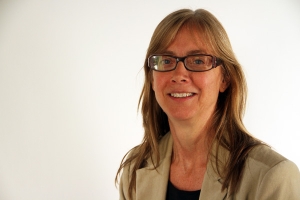Firstbridge courses are offered to degree seeking freshmen and registration is done via webform in pre-arrival checklist.
Professor(s)
Notes
We often have preconceptions about the languages, dialects and accents spoken in our home countries or elsewhere. An accent, for example, may carry a particular status. One language might be used in schools, while another is spoken at home. A certain dialect might be used by news presenters, while another is not. Where do these ideas and customs come from? How do they affect speech communities and their relationships with other communities? What happens when different languages and dialects come into contact with each other? How do languages and dialects evolve over time and how is this evolution viewed within and outside of specific speech communities? Taking a diachronic perspective, we will examine the movement of people in the Middle East to see how their languages and dialects evolved. We will then follow the movement of people into Europe and the Americas, where a myriad of languages are spoken. Shifting to a synchronic perspective, the course will contemplate language interaction in multilingual communities and within multilingual individuals, code-switching between one’s languages, and the development of pidgins and creoles. Case studies, fieldwork, and reports of your own linguistic experience will be an integral part of the course.
Learning Outcomes
- Students will comprehend how information is produced and valued in order to discover, evaluate, use, and create information and knowledge effectively and ethically. In FirstBridge, students will demonstrate the conversational nature of scholarship, and recognize their potential role and responsibilities as contributors to that conversation. For each discipline taught in FirstBridge, students will identify reference works, journals, databases and/or major works in history, in order to start effective research in the field. (FB LO1)
- Students will acquire the study skills, time management, and interpersonal skills needed to meet the demands of university-level academic work at a Liberal Arts College individually or as a team. Students will value the multiple meanings of place through experiential learning at AUP and beyond in the Parisian or global context. (FB LO2)
- Use tools from linguistics to describe a variety of languages.
- Research and describe an unfamiliar language using linguistic terminology.
- Recognize and describe language diversity and relations between speech communities.
- Students will enhance their intercultural understanding of languages, cultures and the histories of local societies, and the global issues to which these relate. (CCI LO1)
- Students will think critically about cultural and social difference. Students will identify and understand power structures that determine hierarchies and inequalities relating to race, ethnicity, gender, nationhood, religion or class. (CCI LO3)
- Students will demonstrate awareness of ethical considerations relating to specific societal problems, values or practices (whether historical or contemporary, global or local) and learn to articulate possible solutions to prominent challenges facing societies and institutions today so as to become an engaged actor across various levels of our interconnected world. (CCI LO4)
Syllabus
Schedule
| Day | Start Time | End Time | Room |
|---|---|---|---|
Tuesday | 15:20 | 16:40 | PL-2 |
Friday | 15:20 | 16:40 | PL-2 |

